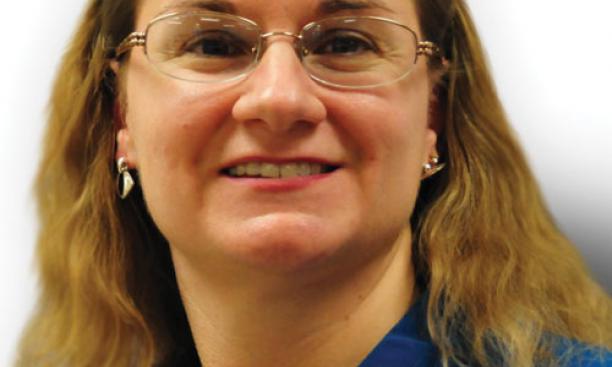

“If you were to ask me to pinpoint my most effective year of teaching, it would be a year in which my [class’s] test scores were the lowest, because I worked a different kind of magic with some students whom you would not expect to succeed as scientists.”
As national teacher of the year, Michelle Shearer ’95 is serving as a spokeswoman for public education. Shearer, who was in Princeton’s Program in Teacher Preparation, has taught for a decade at Urbana High School in Maryland, where she increased the number of students taking her Advanced Placement chemistry course eight-fold. She previously taught chemistry and math for four years at the Maryland School for the Deaf. This year, she is traveling around the world advocating for students and teachers. “I am still teaching,” she says, “just in a much larger classroom.”
What messages do you want to convey as teacher of the year?
One of the main messages is who we are as teachers. I think there’s some misunderstanding as to what teachers actually do in the classroom and what our goals are. Whether we are elementary school teachers, middle school teachers, or high school teachers, we really all are teaching the same thing. It boils down to what’s being called the 4 Cs: critical thinking, creative problem solving, communication, and collaboration — all these habits of mind that [students] are going to need to succeed in college and in the workplace.
If a student finishes my course and scores a 5 on the AP exam but doesn’t know how to succeed on an open-ended problem or can’t communicate with students of different cultures, then he hasn’t learned what he needed to learn from me.
You have encouraged teachers to invite observers into their classrooms. Why?
People need to see the students in action. Issues that can be viewed as simple from the outside might not seem so simple once you get on the inside. Sit next to a student who is dyslexic trying to balance a chemical equation and offer creative ideas. Walk around the lab with 36 students and feel the congestion.
There have been calls to compensate teachers based on merit. What is the best way to assess teacher performance?
It’s difficult to talk about measuring teacher effectiveness when so much of teacher effectiveness is intangible. If you were to ask me to pinpoint my most effective year of teaching, it would be a year in which my [class’s] test scores were the lowest, because I worked a different kind of magic with students whom you would not expect to succeed as scientists — students with special needs, students who didn’t have a lot of natural scientific ability. Should I be evaluated on the number of students who go on to be scientists? Should I be evaluated on the number of minority students I inspired to be the first in their family to go to college? All of these things would be considered measures of effective teaching, [but] how are you going to work that into an evaluation system?
How did your experiences working with the deaf community influence your teaching?
Everything I’ve learned about great teaching I’ve learned from working with deaf students. Whenever you are teaching students who are missing a sense, you have to think outside the box. So you immediately start to think visually, and then you think how can I make this hands-on, how can I get students involved, how can I connect this with their everyday life? I noticed that a lot of things that I did to reach my deaf students worked extremely well with my AP chemistry students.
Why did you become a teacher?
From the time I was a young child, I always had a sense that I wanted to be a teacher. That goal was well received until I decided to go to Princeton. [People would ask me] “Why would you go to Princeton just to be a teacher?” So when I got to Princeton, I thought maybe I should be doing something more. I pursued a premedical path. But I really felt this need to teach. I started volunteering at the Marie Katzenbach School for the Deaf through the SVC [Student Volunteers Council] on Tuesdays in a fourth-grade classroom. From the minute I walked into that classroom, it was like home. I couldn’t wait for it to be Tuesday. Now every day of my life is a Tuesday.
Conducted and condensed by Katherine Federici Greenwood
